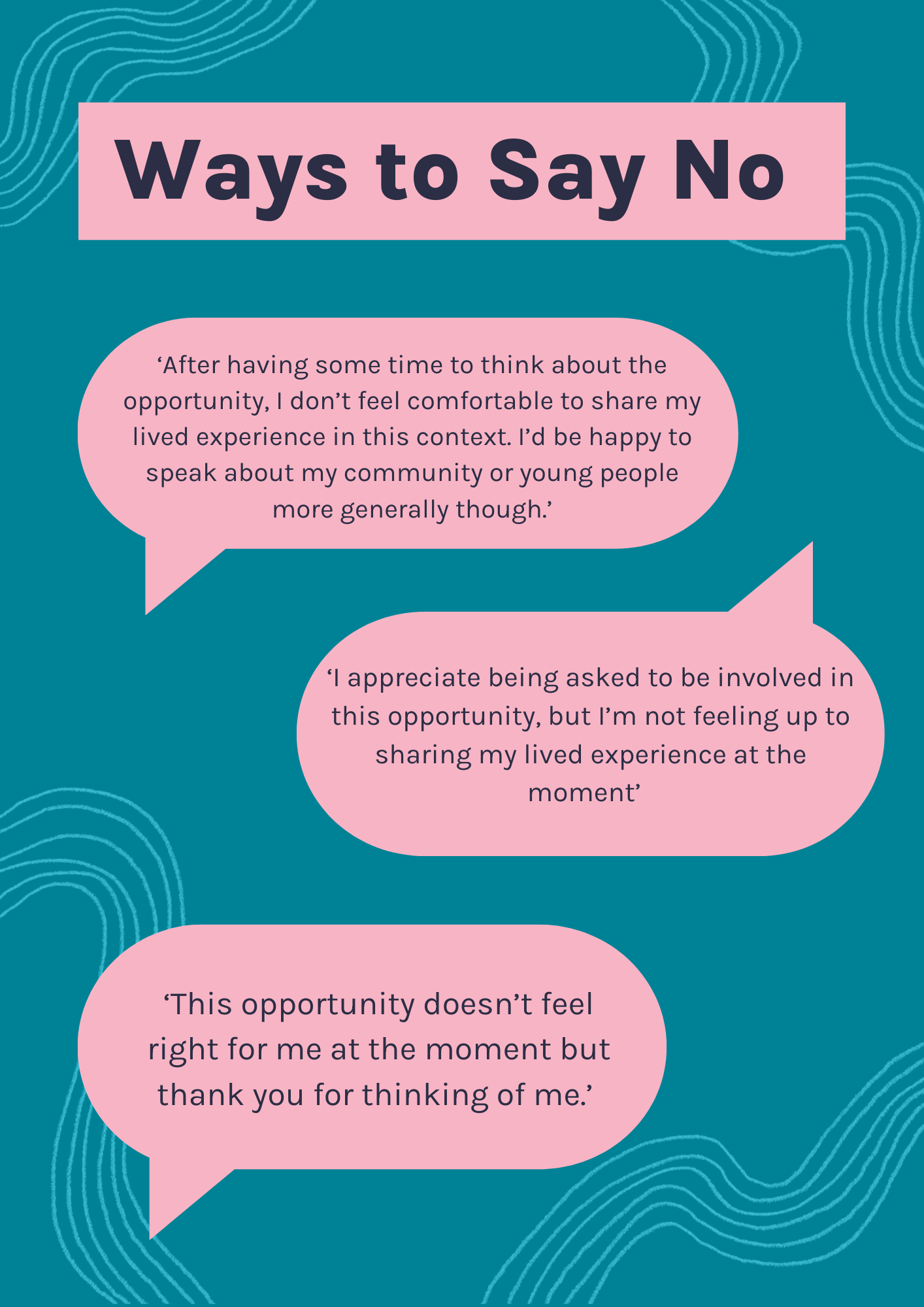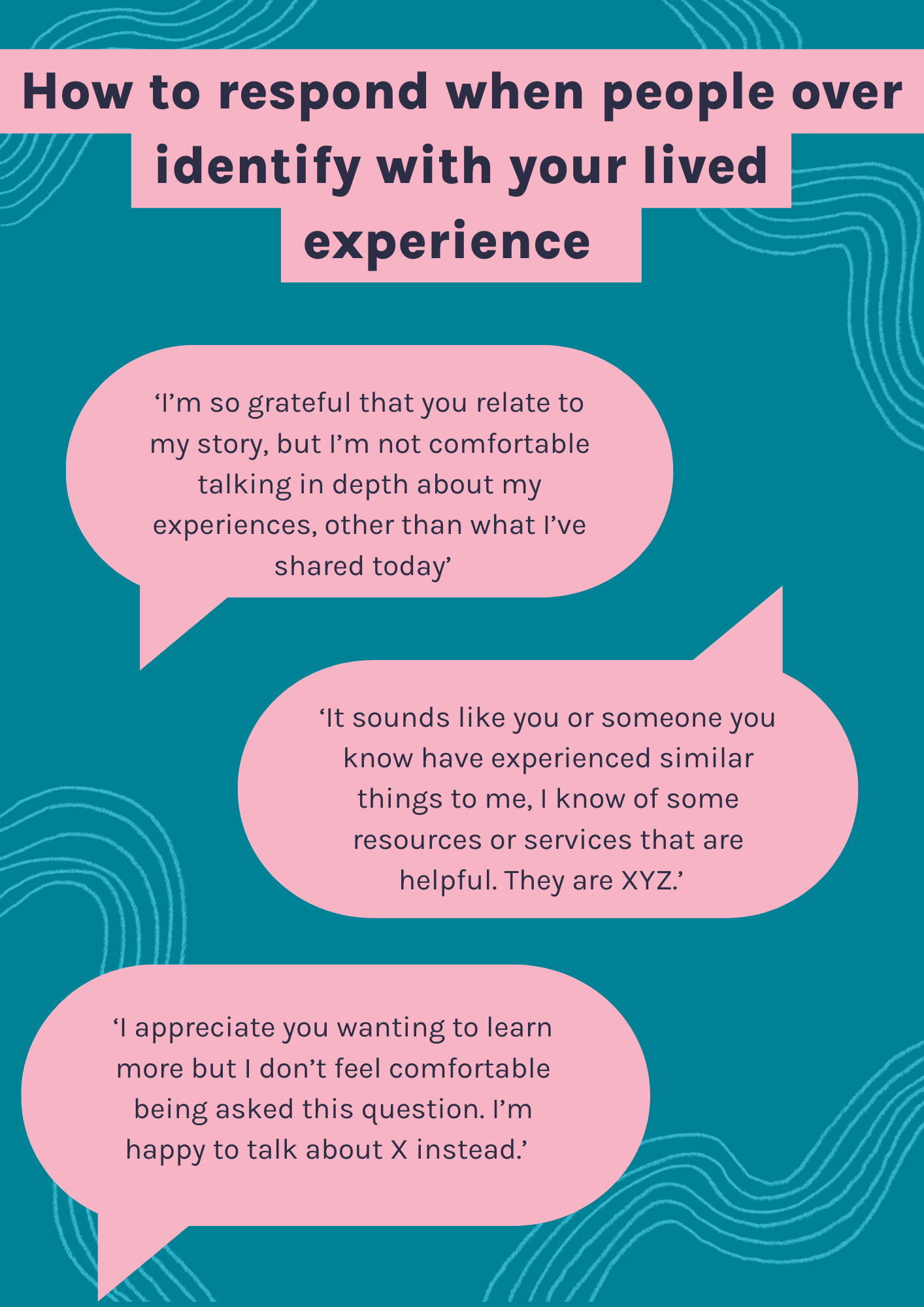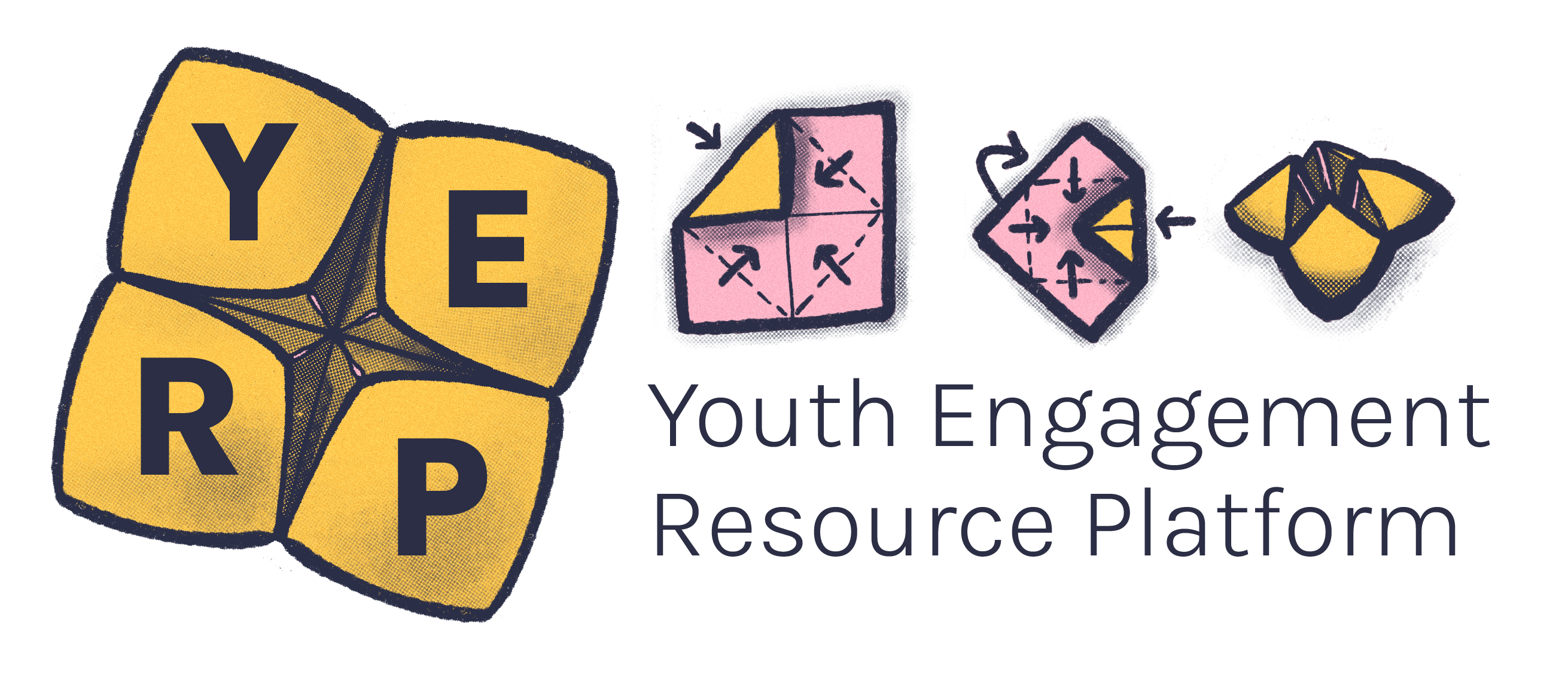As a young person, you might be presented with various opportunities to share your Knowledge you have from your real-life experiences.lived experience in a formal way.1
For example:
- Sharing your experience as a disabled young person in the education system
- Sharing about the times when you felt your gender was affirmed
- Something more general about your experiences as a young person today!
These opportunities can look like:
- Speeches or presentations
- Roundtable discussions with decision-makers (like government departments or youth organisations)
- Being quoted in policy or other reports
Illustration by Ava.
It's important to evaluate if the opportunity is right or safe for you to share your experiences.
Think about the following questions when deciding if you will accept an opportunity. You can also ask the organisation directly.
- Has the organisation designated a worker to support me in the preparation process and on the day?
- Will I have support after the event?
- Who will be listening to my story? Will the audience be people who already know about my lived experience? Or will I need to start from the basics and define certain concepts?
- Will I be representing all young people, a particular group or just myself?
- Will there be question-and-answer time? Will the questions be screened for safety first?
- Will my story need to fit within a certain lens or theme?
If the opportunity requires you to represent all young people, this isn’t a great sign, as you should only be expected to represent your experiences and those of your peers similar to you.
If you feel comfortable, you could chat to the organisation and let them know you’d like to represent yourself. If they understand this, it shows they are ready to hear and understand the full complexities of young people's experiences.
If not, they might not be the best place to share your experiences in a meaningful way.
You should never be pressured to share your lived experience when you don’t feel comfortable to. You should never be made to feel bad for saying no or for changing your mind about an opportunity.
It’s important to think about what you feel comfortable sharing and what you’re happy for strangers to know about you1.
In some situations, you might be supported by a worker to figure out your boundaries and what’s safe for your audience to hear. In other situations, you might need to figure out your boundaries on your own1.
The questions below can help you reflect on what feels comfortable to share. You could talk with a trusted adult or friend or reflect on your own1.
- What are important aspects of my identity?
- What am I passionate about?
- How do I feel when I meet someone who shares parts of my identity?
- What aspects of this felt empowering when they shared their identity with me?
- What aspects of my life and identity are private? Maybe these are the things I don’t publicly share with anyone or only a few trusted people in my life.
- What parts of my life and identity might still feel raw, painful or complex?
- What would I feel comfortable with a stranger knowing about me?
- What would I feel comfortable with a future employer knowing about me?
- What is appropriate to talk about in the given context? Think about things like the lived experience of the audience, what might be triggering for people to hear, their understanding of the topic I’m talking about and if I need to explain certain concepts.
Regardless of why you’re sharing your lived experience, it’s important that you feel safe, comfortable and empowered to tell your story.
If you feel uncomfortable for any reason, you have the right to change your mind about participating or say no to the opportunity.
There are a few ways you can turn down an opportunity or back out once it’s started. In general, we recommend that you’re respectful when doing so.
Here are some scripts you can use or adapt.
Other considerations
- If you are involved in a roundtable or consultation for a policy or any other type of report, its The way of doing things that is considered most correct or ethical. best practice for your answers to be quoted anonymously.
- There might be other times where the person writing the report would like to add demographic information to the quote like your name, age, whether you live rurally or in a metro area and lived experience.
- If it’s important to you to stay anonymous, clarify how your comments will be used in the report before agreeing to be involved.
- Remember, you have the right to withdraw at any time and ask that your contribution be removed.
Suggestions on ways to say no to sharing your lived experience.

You’re entitled to feel safe and comfortable when sharing your lived experience.
No one in the audience has a right to any information about you beyond what you want to share. But sometimes people who hear about your lived experience can over identify with you and want to share how they relate1.
For example, maybe they have a child who is transgender, a best friend who is an Aboriginal or Torres Strait Islander person or are disabled themselves and want to talk to you about their specific situation.
When this is done in a mindful way, it can be a really validating and affirming experience to meet people that connect with your story and understand your lived experience.
In other cases, the person might approach you and ask you invasive questions, overshare or When someone shares a lot of traumatic details at once, without warning or asking you if it’s okay. trauma dump.
This can happen because you might be the first person they’ve met that shares their lived experience, or you’re the first young person who they’ve heard speaking in such an inviting and accessible way on this topic.
The audience member might forget about social etiquette, boundaries and that you’re a young person too.
In an ideal situation you have a youth worker or support person with you to help field inappropriate questions or redirect someone who’s oversharing, but sometimes you might be alone. Think about how you’d assert your boundaries or politely interrupt someone if they make you feel uncomfortable1.
Note: this information is about when someone behaves inappropriately after you share your lived experience because they relate to you. In this situation we assume they have good intentions, but their behaviour doesn’t quite match up.
However, if someone in the audience is behaving in an unsafe or discriminatory way, do what you need to feel safe or leave the situation.
You should also check ahead of time how the organisation will support you. For example, will they remove the person or stop the presentation while the matter can be dealt with?
Here are some scripts you can adapt.
A list of scripts you can adapt when people relate to your lived experience.

Sharing your lived experience can be draining and so self-care and support measures are important to your wellbeing1.
Here are some tips:
- Know what your boundaries are beforehand, and only share what you’re comfortable with.
- Consider whether you are in the right headspace for the opportunity before doing it and cancel if you need to.
- Have a debrief session set up with a worker or support person if you’ve shared your lived experience in a formal way. Discuss strengths, weaknesses, and any issues that came up.
- Do something relaxing or enjoyable before and/or afterwards. This could be going for a walk, being in nature, reading, yarning with friends, listening to music, gaming or something else to help you reset.
- Psych Hub. (November 2021). Guide for sharing lived experience. https://9063283.fs1.hubspotusercontent-na1.net/hubfs/9063283/Content/Guides/Guide%20for%20Sharing%20Lived%20Experience.pdf






